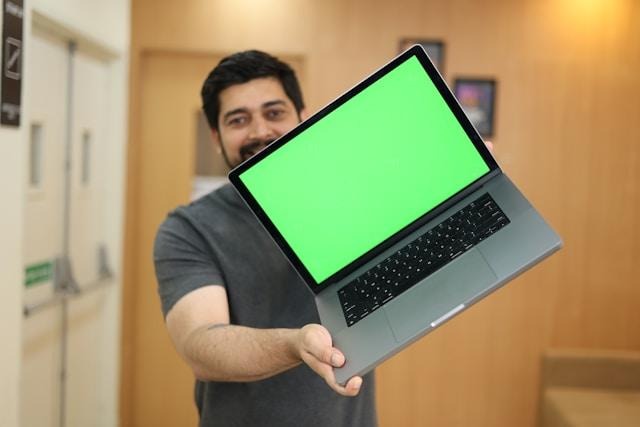Meta description: If your laptop is generating more heat than usual and just a simple touch makes you feel that it’s hot, you need to take corrective action without any delay.
Many reasons cause laptop overheating – from overuse to a faulty fan, working with heavy programs, and viruses. The problem with overheating is that your hardware might get damaged, and the device could crash, leading to data loss.
Install temperature monitoring software such as Core Temp and HWMonitor to closely keep a record of changes in your laptop. Clean the fan, scan for viruses, and keep your device vents open to allow smooth air flow. Here are tips on how to cool down a laptop, protect your hardware, and data.
Why is laptop overheating a problem?
Laptop overheating is a problem because it slowly damages your device’s hardware, including the battery, RAM, and CPU. Due to this, your device starts to deteriorate in performance. The laptop’s lifespan is shortened, and you could lose your data due to a damaged hard disk. If the overheating increases to a certain point, your laptop might start to shut down multiple times and affect your workflow.
A Mac temperature monitor keeps a record of heat changes in your device and ensures it runs smoothly. Install the best Mac temperature monitor to keep your battery, GPU, and CPU healthy. A CPU temp monitor Mac has many roles, including ensuring your laptop maintains optimal performance. This tool is useful when using heavy programs such as video editors, design software, and streaming platforms. A healthy laptop lets you work more hours and feel emotionally strong.
Why is my laptop overheating?
Overheating of your laptop happens because of several reasons, but the outcome is mostly negative. Here are the reasons for laptop overheating, which could lead to damaged hardware and lost data:
● Damaged battery: Overheating often happens when your battery is faulty and cannot hold a charge. Due to this, users tend to keep the device plugged while working. This overworks the battery, leading to overheating.
● Overworking the RAM and CPU: The CPU is the main thinking power of your device, while the RAM temporarily stores things. Both components overheat when you use heavy software or apps.
● Blocked vents or fan: A faulty fan does not expel hot air from your laptop, while blocked vents retain it, leading to overheating.
● Viruses: Virus or malware-infected laptops slow down and process tasks more slowly. The infection overworks the device, leading to laptop overheating.
● Limited storage: Filled-up disks leave no space for programs and documents to run on your laptop. This overworks the hardware and software, leading to heating.
Why a cooled-down laptop is important
A cooled-down laptop is important because it gives you peace of mind by providing enhanced task performance. The device allows you to work more hours outdoors without requiring frequent charging. Its battery serves you for more years since it does not get damaged. Your laptop serves you for many years due to healthy hardware. Your productivity increases due to zero crashing experiences, and you enjoy quieter operations.
How to cool down a laptop
One of the best ways to fix laptop overheating and keep it cooled down is to install temperature monitoring software. There are several options available online, including HWMonitor, Sensor, Core Temp, and Mac Fan Control. These tools closely monitor your device’s temperature, allowing you to view heat changes and adjust accordingly.
Clean the fan
Your laptop’s fan is designed to spin air and circulate it throughout the entire hardware. This cools the device and removes dust. The device vents work hand in hand with the fan, and you should keep them clean too.
Take breaks
Take breaks to allow the laptop to rest, especially when working with heavy programs. These programs require more space and energy to run, which leads to laptop overheating. You may keep the device in sleep mode to allow it to cool off. You might consider replacing the fan or another piece of hardware if overheating persists.
Update software and install antivirus
Laptop overheating can be caused by a virus and malware, leading to the overworking of the hardware. An infected device may multiply files, change software code, or introduce incompatible tools. Infections are also risky because they open doors for hacking, sudden laptop crashes, and data theft.
Prevent overheating by keeping your software updated and installing an antivirus. This prevents attacks that could affect the smooth working of your device. Updates should be done on the software and operating system, ensuring you enjoy tight online security. Choose the best antivirus to ensure you benefit from top-notch protection.
Conclusion
Laptops generate heat when running, but the temperature becomes a problem when it increases too much. Causes range from running heavy programs to virus infections and faulty hardware. Monitor the health of your hardware and temperature changes by installing monitoring software. Update your laptop and clean it to ensure you do not have too many files that slow down performance.



